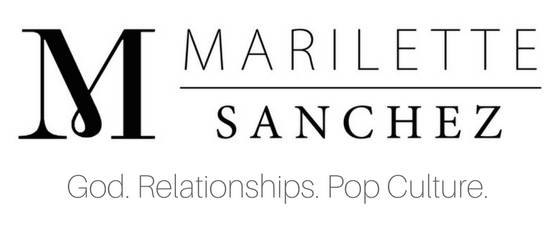Why We Must Drop the Stigma of Mental Illness
/By Stephanie Jonasson
This is a guest post from Stephanie, my dear friend from college. Stephanie got her start in the field of mental health working as a Mental Health ParaProfessional in a Residential Treatment Program for teens. She has since transitioned into donor development (for the same non-profit health organization) where she spends her time helping the local community better understand what it means to struggle with mental illness.

I’m so excited that Marilette invited me to share my two cents on the recent loss of one of my favorite comedians, and some of the misconceptions that surround suicide and mental illness. The news has been inundated this week with the gory details of Robin Williams’ suicide. I’ve watched as conversations sprang up around me on social media, in the hours after the news broke as people tried to come to grips with what had happened. The opinions I encountered ran the gamut of emotion from anger, which accuses him of being “selfish” for leaving his family behind, to pity, which absolves Mr. Williams of all responsibility for his actions.
My experience with mental illness is both professional and familial. I have provided direct care for teens in treatment for mental health issues; and I’ve seen the devastation that depression (and illnesses like it) has caused in my family. In all that time, I’ve learned one important thing: people who suffer from chronic mental illness are fighting forces that have literally re-wired their brain chemistry.
They didn’t ask for it, and they can’t just “fix it” – at least not at this point in medical technology. In a lot of cases it can be treated quite well, but I’ve also seen some horror stories where it has taken a lot of trial and error just to get someone stabilized.
Suicide takes a sad mental health story and turns it into a nightmare. Any time someone dies, his or her family and friends bear the grief of that loss. They have to struggle with everything not said and the important moments their loved one will miss. It’s so much worse, however, having to look back and know that this person, for whom you cared so deeply, despaired enough to take his or her own life. I would do just about anything for the ones that I love, and I can’t imagine the guilt and grief that comes from knowing they were hurting and I didn’t stop it. It’s easy from that perspective to call the one who has died “selfish”. But in most cases, people stay alive longer because they care about the family and friends they would leave behind. They don’t want to hurt the people they love; they just want to stop hurting.
Don’t get me wrong: suicide is NEVER the right solution for depression. Suicide doesn’t just “happen” to people, it has to be chosen and carried out. The destruction of self is so against the image of God that we were created to be, that it should be repugnant to all of us. But we can never forget – even in our grief – that it’s a choice some people make because they feel like they have no better alternative.
Living with mental illness is such a frightening experience. Humans are great at intervening in a physical crisis (floods for example) but issues like depression, bipolar disorder, or schizophrenia send people running for the hills. Often when people do notice that something is wrong they respond with criticism for symptoms. This kind of reaction makes experiencing depression like trying to swim laps with concrete blocks on your ankles while the lifeguard yells at you for falling behind. The person battling mental illness needs help and mercy, not judgment. For example: someone might be censured for erratic sleep patterns, profanity, and excessive drinking but it takes someone with experience to recognize the self-treatment of an underlying anxiety disorder.
As Christians, we should be at the forefront of helping our brothers and sisters who are struggling with mental illness. We know we live in a fallen world where God’s creation doesn’t function as He originally intended. Why are we then surprised when our minds (a physical and biological entity apart from our spirits) are also marred from the effects of the Fall? I’ve heard well-meaning Christians advise people with depression to “pray more” for healing or “joy”. Yet those same people would never suggest a cancer victim solely rely on prayer – to the exclusion of medical and community support – for healing. We have to start recognizing depression and other mental illness as a legitimate health issue, and abandon the stigma that keeps us from talking about it openly.
Community is so desperately important for people who struggle with depression. An astonishing 50-70% of people will tell someone before they attempt suicide. They don’t have to reach a point where they consider suicide. There is hope. Someone who is centered in his faith, actively seeking help from his community, and receiving medical attention is significantly less likely to commit suicide. (Not saying it couldn’t happen in an extreme case, but the odds are significantly reduced.) But they need to know that they can talk about their struggle without being judged for struggling.
I grieve for Robin Williams and the family he left behind. In him, we lost a kind man who inspired us with desktop monologues and infused our lives with humor. I can only hope that his death will continue to foster discussion about depression and suicide, for the sake of everyone out there who is still struggling.
QUESTION: Why do we Christians tend to lump mental health with spiritual and not physical ailments, thereby making it something we can only “pray away”? Let me know in the comments below.






